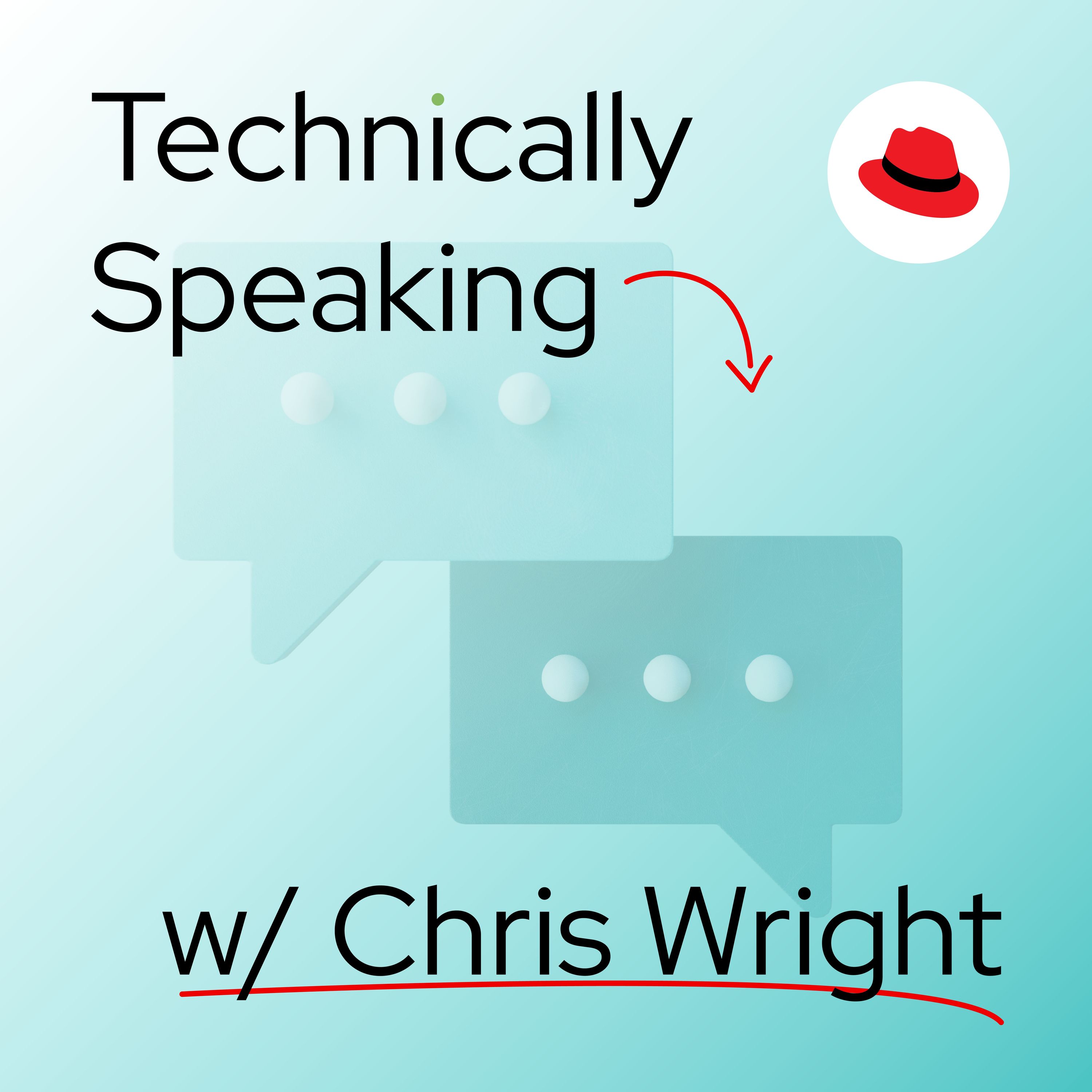Technically Speaking with Chris Wright

Technically Speaking with Chris Wright
Podcast Description
Struggling to keep pace with the ever-changing world of technology? For experienced tech professionals, making sense of this complexity to find real strategic advantages is key. This series offers a clear path, featuring insightful, casual conversations with leading global experts, innovators, and key voices from Red Hat, all cutting through the hype.
Drawing from Red Hat's deep expertise in open source and enterprise innovation, each discussion delves into new and emerging technologies-- from artificial intelligence and the future of cloud computing to cybersecurity, data management, and beyond. The focus is on understanding not just the 'what,' but the important 'why' and 'how': exploring how these advancements can shape long-term strategic developments for your organization and your career. Gain an insider’s perspective that humanizes complex topics, helping you anticipate what’s next and make informed decisions. Equip yourself with the knowledge to turn today's emerging tech into valuable, practical strategies and apply innovative thinking in your work.
Tune in for forward-looking discussions that connect the dots between cutting-edge technology and real-world application, leveraging a rich understanding of the enterprise landscape. Learn to navigate the future of tech with confidence.
Podcast Insights
Content Themes
The podcast explores a variety of technology topics including artificial intelligence, cloud computing, open source innovation, and cybersecurity. Specific episodes include discussions on AI optimization strategies with experts like Nick Hill and insights into enterprise AI implementations with Brian Stevens, focusing on real-world applications and strategic developments.

Struggling to keep pace with the ever-changing world of technology? For experienced tech professionals, making sense of this complexity to find real strategic advantages is key. This series offers a clear path, featuring insightful, casual conversations with leading global experts, innovators, and key voices from Red Hat, all cutting through the hype.
Drawing from Red Hat’s deep expertise in open source and enterprise innovation, each discussion delves into new and emerging technologies– from artificial intelligence and the future of cloud computing to cybersecurity, data management, and beyond. The focus is on understanding not just the ‘what,’ but the important ‘why’ and ‘how’: exploring how these advancements can shape long-term strategic developments for your organization and your career. Gain an insider’s perspective that humanizes complex topics, helping you anticipate what’s next and make informed decisions. Equip yourself with the knowledge to turn today’s emerging tech into valuable, practical strategies and apply innovative thinking in your work.
Tune in for forward-looking discussions that connect the dots between cutting-edge technology and real-world application, leveraging a rich understanding of the enterprise landscape. Learn to navigate the future of tech with confidence.
While generative AI demos are flashy, moving those capabilities into a reliable, secure enterprise production environment is a different ballgame. In this episode of Technically Speaking, Red Hat CTO Chris Wright sits down with longtime Red Hatter and engineering leader Cat Weeks to dismantle the myth that you need a massive “”Frontier Model”” for every task.
Together, they explore the practical realities of enterprise AI, advocating for a “”right tool for the job”” approach. The conversation dives deep into the necessity of moving away from monolithic models toward a diverse fleet of specialized Small Language Models (SLMs) and agentic workflows. They also tackle the critical “”illities””, reliability, security, and portability, that often derail projects after the proof-of-concept phase.
Beyond the code, Chris and Cat discuss the human and process challenges of AI adoption, from navigating employee fear to ensuring data stewardship. Tune in to discover the differences between RAG and fine-tuning, how to manage agent identities, and why the future of enterprise AI belongs to a toolbox of specialized solutions, not just one giant hammer.

Disclaimer
This podcast’s information is provided for general reference and was obtained from publicly accessible sources. The Podcast Collaborative neither produces nor verifies the content, accuracy, or suitability of this podcast. Views and opinions belong solely to the podcast creators and guests.
For a complete disclaimer, please see our Full Disclaimer on the archive page. The Podcast Collaborative bears no responsibility for the podcast’s themes, language, or overall content. Listener discretion is advised. Read our Terms of Use and Privacy Policy for more details.